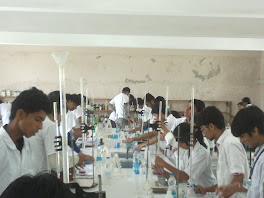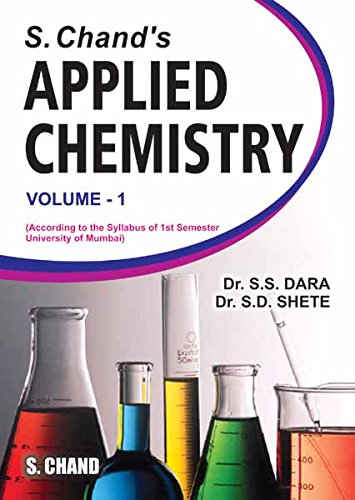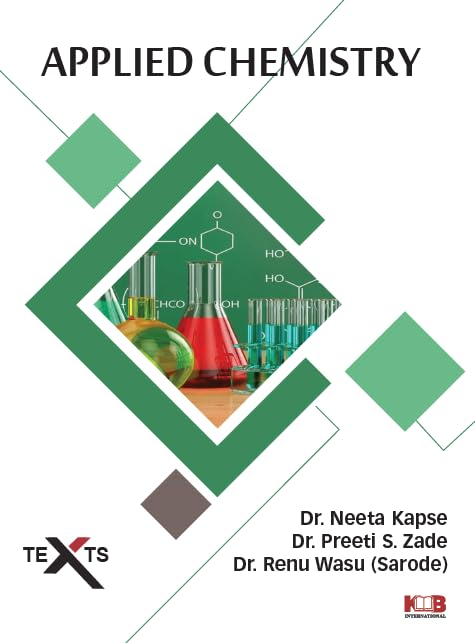My Lab at GEC Valsad
After learning this subject you will be able to....
---Identify and describe reactivity patterns in an organic reaction.
---Explain theoretical principles underlying molecular structure, bonding, and properties
---Describe the importance and relevance of Hard and soft materials and also their characterization, properties, and uses in engineering applications.
---Distinguish the difference between the different orders of reaction and apply accordingly.
---Utilize different thermo-dynamical laws to explain the course of reactions.
---Apply the different spectroscopic techniques to explain the inner &surface characteristic of molecules.
BOOKS for References and reading
All are informed to download and learn Microsoft Team software. We may start to learn in that platform during next semester.
All your queries are welcomed.
Have a great learning.
https://youtu.be/OxfukizkyCA
https://youtu.be/k4j5tY2iL54
All your queries are welcomed.
Have a great learning.
https://youtu.be/OxfukizkyCA
https://youtu.be/k4j5tY2iL54
https://youtu.be/46aNGfyl1FM
List of Experiments:
NO TOPIC Video Links Manual V-LAB Link 1 Calorimetry: Heat of solution / neutralization 2 Measurement of Conductance.
3 Lambert’s Beers Law.
4 Turbidity 5 pH Meter.
6 Viscosity measurement 7 Ester Hydrolysis (IstOrder reaction).
8 Potentiometer
9 Inorganic Qualitative Analysis. Link 1 10 Inorganic Qualitative Analysis. Link 2 11 Inorganic Qualitative Analysis.
12 Inorganic Qualitative Analysis.
13 Organic Qualitative Analysis. 14 Organic Qualitative Analysis. 15 Organic Qualitative Analysis.
16 Organic Qualitative Analysis.
NOTE: For qualitative analysis see all the links of four experiments before starting the experiments.
NO | TOPIC | Video Links | Manual | V-LAB Link |
1 | Calorimetry: Heat of solution / neutralization | |||
2 | Measurement of Conductance. | |||
3 | Lambert’s Beers Law. | |||
4 | Turbidity | |||
5 | pH Meter. | |||
6 | Viscosity measurement | |||
7 | Ester Hydrolysis (IstOrder reaction). | |||
8 | Potentiometer | |||
9 | Inorganic Qualitative Analysis. | Link 1 | ||
10 | Inorganic Qualitative Analysis. | Link 2 | ||
11 | Inorganic Qualitative Analysis. | |||
12 | Inorganic Qualitative Analysis. | |||
13 | Organic Qualitative Analysis. | |||
14 | Organic Qualitative Analysis. | |||
15 | Organic Qualitative Analysis. | |||
16 | Organic Qualitative Analysis. |
NOTE: For qualitative analysis see all the links of four experiments before starting the experiments.
BRSUDANI







No comments:
Post a Comment